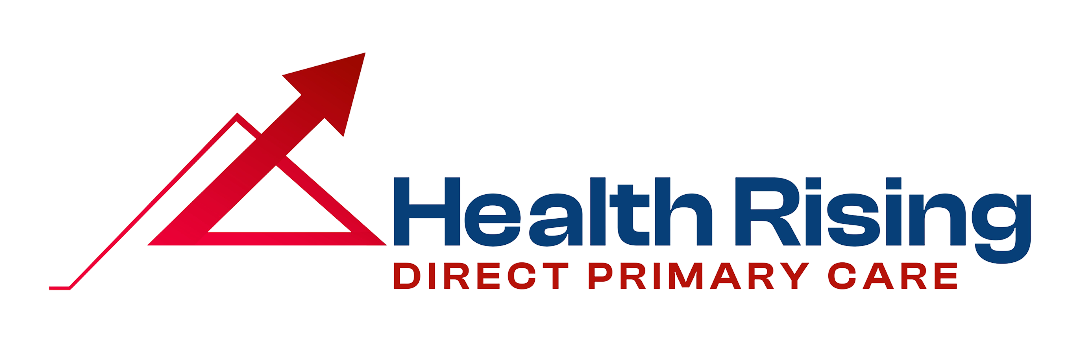Burnout vs. depression is a conversation that is more important today than ever. Both experiences share many signs, including exhaustion, low motivation, and feelings of hopelessness. Yet the solutions that truly help are not the same. Misunderstanding the difference can delay healing and leave people feeling stuck. At Health Rising DPC, we believe that understanding these differences empowers individuals to reclaim their well-being with the right tools and support.
Recognizing whether you are facing burnout or depression is not about placing a label. It is about finding a path forward that addresses the real root of what you are feeling.
Burnout vs. Depression: Recognizing the Overlap
At first glance, burnout and depression can seem almost identical. Both can leave a person feeling drained, emotionally fragile, and detached from the activities they once enjoyed. It is common for someone who is burned out to say they feel empty inside, just as someone struggling with depression might describe the world as colorless or overwhelming.
Both burnout and depression can bring intense fatigue, persistent sadness, irritability, difficulty concentrating, and a loss of interest in things that used to bring joy. Both can affect sleep patterns, appetite, and physical health.
This shared ground often leads to confusion. People assume that if they are exhausted and unmotivated, they must be depressed. However, digging a little deeper reveals key distinctions that shape the most effective solutions.
Understanding these overlapping symptoms is the first step toward clarity. The next step is to explore what sets burnout apart from clinical depression.

What Makes Burnout Unique
Burnout is not a mental illness. It is a state of emotional, physical, and mental exhaustion caused by prolonged and excessive stress. Typically, burnout stems from very specific external pressures. Work demands, caregiving responsibilities, academic overload, or relentless self-imposed expectations are common culprits.
When burnout takes hold, it often feels tied to one area of life. Someone might say, “I love my family, but taking care of everyone leaves me feeling like I have nothing left,” or “My job used to excite me, but now just getting through the day feels impossible.”
Key characteristics of burnout include:
- Feeling overwhelmed by responsibilities in a particular role
- Emotional distancing or detachment from work or caregiving duties
- Reduced sense of accomplishment or effectiveness
- Physical exhaustion that improves with rest or time away
Burnout can create a deep sense of cynicism and depletion. However, when the external pressures ease, many people begin to recover naturally. They may rediscover energy, creativity, and hope once the stressors are removed or addressed.
It is important to remember that burnout does not mean you are broken. It often means your environment or expectations have pushed you beyond your sustainable limits.
What Makes Depression Different
Depression is a clinical condition that affects the brain and body in profound ways. Unlike burnout, depression is not typically confined to one area of life. It casts a wide net, coloring everything with a sense of heaviness and despair.
Someone living with depression often struggles to feel joy even during rest or vacations. Hobbies no longer spark any interest. Social interactions become draining or even painful. Life itself can feel overwhelmingly bleak, even when external circumstances seem fine.
Key characteristics of depression include:
- Persistent sadness or numbness not tied to a specific situation
- Loss of interest in all or most activities
- Feelings of worthlessness, guilt, or hopelessness that do not lift
- Significant changes in appetite, sleep, or energy levels
- Thoughts of death or suicide
Depression alters brain chemistry and nervous system function. It is not something that can be cured by simply taking a few days off or adjusting your schedule. Healing often requires professional support, and it may involve therapy, lifestyle changes, and sometimes medication.
Recognizing depression for what it is allows individuals to pursue the deeper, more comprehensive care they need and deserve.
Why Mislabeling the Problem Delays Healing

Confusing burnout for depression or vice versa can create significant roadblocks to recovery. If someone facing burnout believes they are clinically depressed, they might pursue treatments that do not address the environmental stressors draining them. They might start medication when what they need most is to set new boundaries or find a different pace of life.
On the other hand, if someone with depression assumes they are only burned out, they might delay seeking professional care. They might believe that a vacation, a new job, or a better planner will fix the problem, only to find themselves sinking deeper.
At Health Rising DPC, we often meet patients who feel frustrated by solutions that missed the mark. Empowering patients with the right understanding is essential for meaningful and lasting healing.
Signs You Might Be Facing Burnout
Identifying burnout involves looking carefully at the context of your exhaustion. Some questions to consider include:
- Is my exhaustion tied to a specific role or responsibility?
- Do I feel better after time away from work, caregiving, or other duties?
- Am I mostly struggling with stress, cynicism, and feelings of ineffectiveness rather than persistent sadness?
If you answer yes to these questions, burnout may be the core issue. Solutions often involve rebalancing workload, improving self-care routines, reestablishing boundaries, and reconnecting with activities that restore your sense of purpose and joy.
Restorative sleep and movement are especially powerful in addressing burnout. So are connection and whole foods that stabilize energy and mood. These create a stronger foundation for resilience and recovery.
Signs You Might Be Facing Depression
Recognizing depression requires looking beyond external circumstances. Important questions include:
- Do I feel empty, hopeless, or disconnected from life itself, even outside of work or stress?
- Have I lost interest in nearly everything that once mattered to me?
- Are feelings of guilt, shame, or self-criticism overwhelming and persistent?
If these resonate with you, it is important to seek professional evaluation. Depression is highly treatable, but it rarely resolves without intentional support. A combination of lifestyle interventions, therapy, and when needed, targeted medication, can create a pathway toward real healing.
Knowing the difference between burnout and depression empowers you to take the right steps toward recovery rather than feeling trapped in cycles that do not work.
Direct Primary Care and Burnout vs. Depression: Tailored Support for Real Healing
At Health Rising DPC, we see the full human being, not just a diagnosis. Whether you are struggling with burnout or depression, you deserve care that looks beyond quick fixes. Direct Primary Care provides a model that nurtures long-term health, strong doctor-patient relationships, and personalized strategies that go deeper.
For burnout, DPC offers the space to talk openly about life pressures, health habits, and emotional stress without being rushed. It creates a safe environment for identifying small changes that can restore energy, purpose, and vitality.
For depression, DPC provides accessible mental health support and coordinates care thoughtfully. Instead of fragmented visits, patients receive continuity and compassion. Providers can recommend therapy, lifestyle shifts, and other resources tailored to each person’s unique needs.
Healing from burnout or depression is rarely a straight line. Having a trusted healthcare partner who listens, supports, and empowers makes all the difference.
Small Wins Matter No Matter the Diagnosis

Whether you are recovering from burnout or depression, it is important to celebrate every small step forward. Healing is not about perfection. It is about building momentum through daily practices that honor your body, mind, and spirit.
Small wins might look like:
- Taking a 15-minute walk even when energy feels low
- Saying no to one unnecessary obligation
- Preparing one nourishing meal
- Setting up an appointment with a supportive healthcare provider
- Reaching out to a friend for genuine connection
These small wins build resilience over time. They create the foundation for larger transformations and remind you that recovery is possible.
At Health Rising DPC, we are passionate about helping patients reclaim their health by focusing on what is real, practical, and sustainable. Burnout and depression are challenges, but they do not have to define your story.
Conclusion
Understanding burnout vs. depression is not just a clinical exercise. It is a lifeline for real healing. Although burnout and depression may look similar at first, they require very different solutions. Burnout calls for addressing external pressures, restoring balance, and reigniting purpose. Depression demands deeper therapeutic care, often involving emotional healing, professional treatment, and patient support.
Knowing the difference between burnout vs. depression empowers you to make choices that honor your real needs. At Health Rising DPC, we believe that with the right understanding and support, every individual can rise above exhaustion and find a path to lasting wellness.
If you are unsure whether you are dealing with burnout vs. depression, we are here to help. Schedule a visit with Health Rising DPC to get the clarity and support you need for the healing journey ahead.













